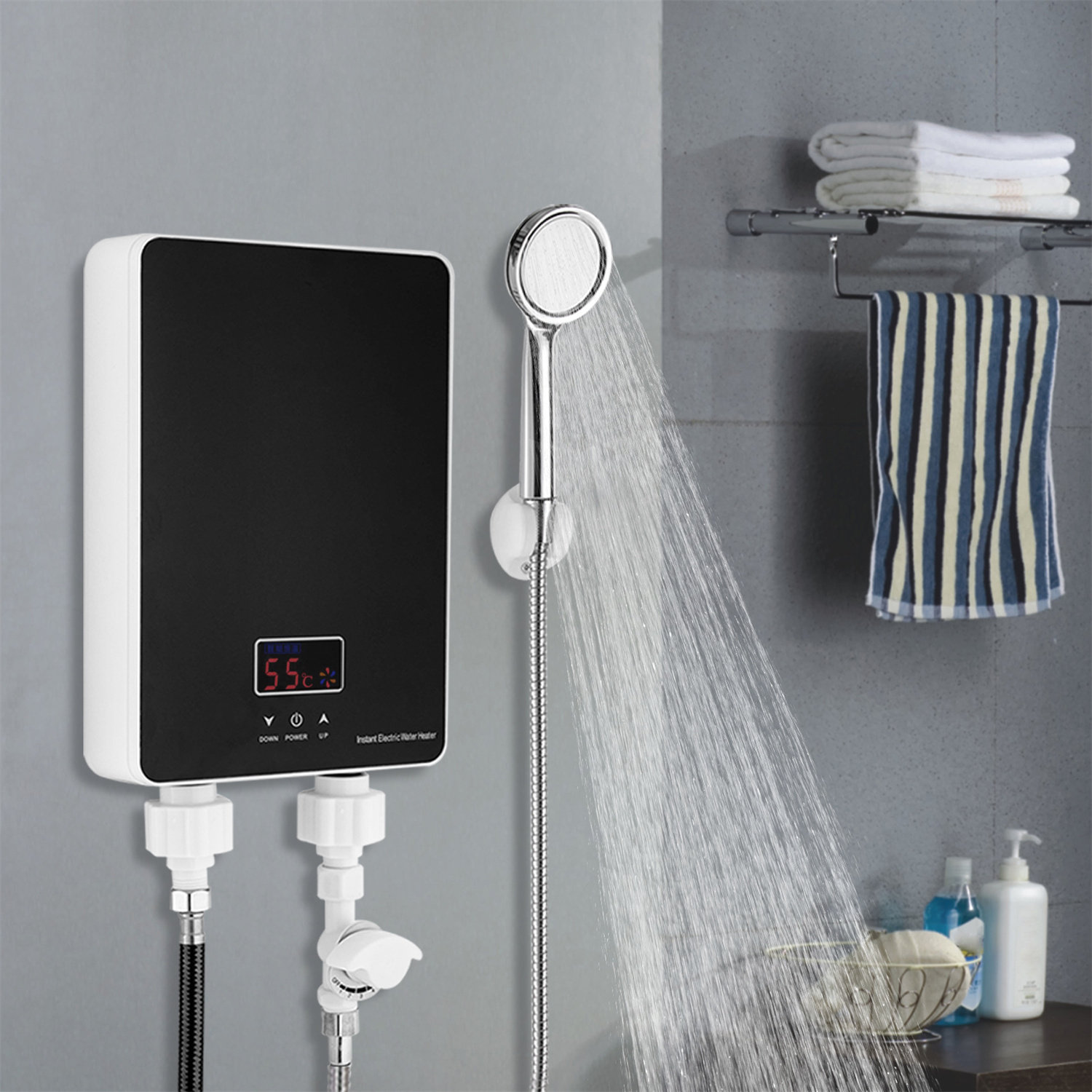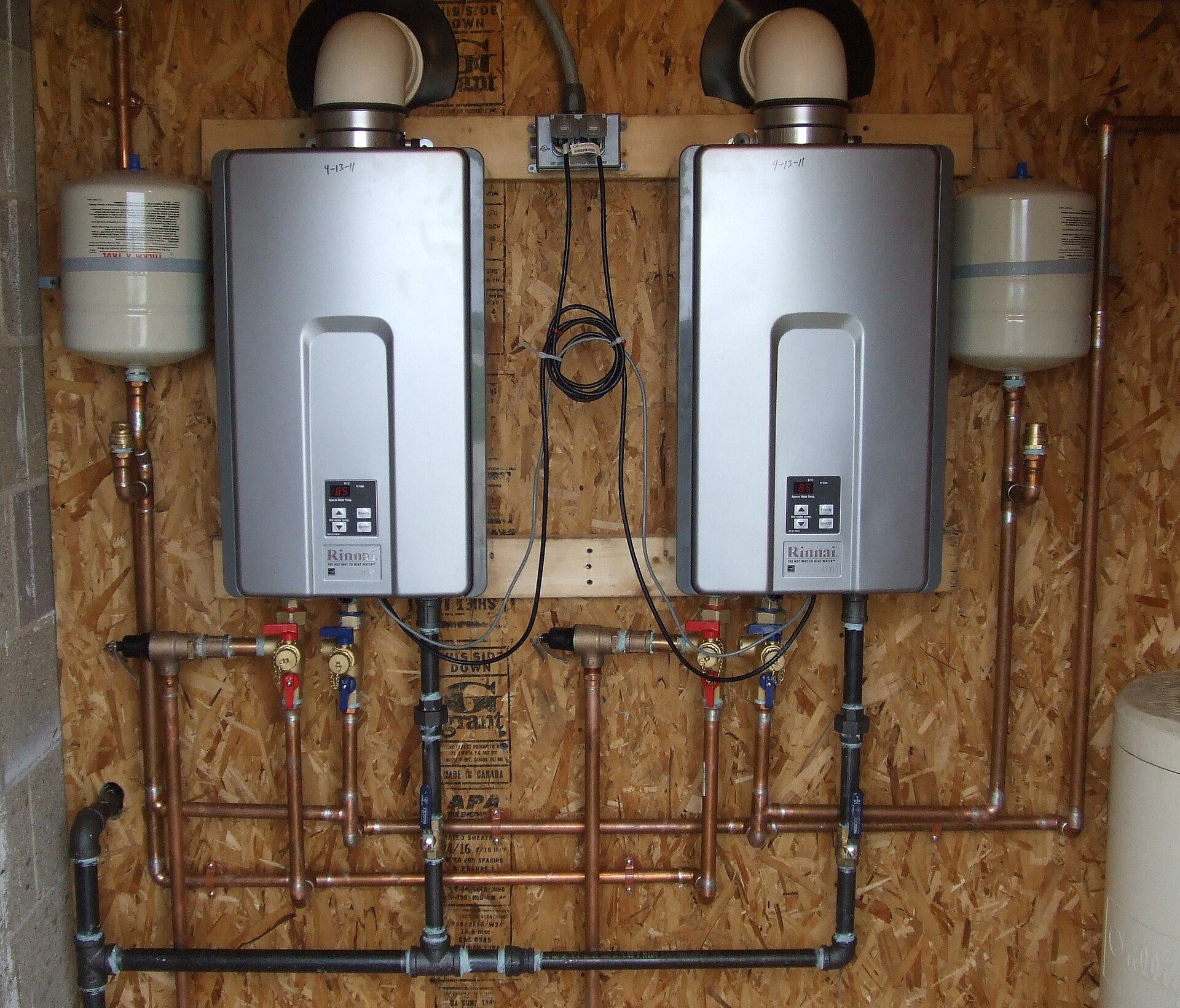What are your concepts on Pros and Cons of Tankless Water Heater?

In a globe where ease and performance preponderate, it's no surprise that property owners are continuously in search of smarter methods to manage their home's energy usage and convenience. One development that has actually continuously gained appeal is the tankless water heater. But what exactly makes these systems stand apart from the conventional tank-based models a lot of us grew up with? Let's dive in and check out the benefits of tankless hot water heater, aiding you determine if it's time to make the button in your home.
Intro
Picture this: you step into the shower after a long day, expecting a comforting waterfall of warm water, only to be welcomed by icy beads because the last individual used everything up. Audio acquainted? Standard hot water heater store a set amount of warm water, implying you're at the mercy of that container's supply. Tankless systems, on the other hand, heat water as needed. No more running out mid-shower, no more wrestling with routines simply to make sure warm water is offered.
Recognizing Tankless Water Heaters
What Are Tankless Hot Water Heater?
Tankless hot water heater, in some cases known as on-demand or immediate water heaters, give hot water just as it's required. Rather than keeping gallons of pre-heated water, these devices kick into action the moment you switch on the tap. Water goes through a heat exchanger, heating up in real-time, meaning you get a continuous flow of hot water without the requirement for a huge tank sitting idly by.
How Do They Differ from Traditional Equipments?
Traditional heaters hold a reservoir of hot water, using power to keep that storage tank at a consistent temperature. Tankless units get rid of the standing supply, reducing lost power and the large footprint of a large cyndrical tube. Basically, you're upgrading from a "stockpile" attitude to a "made-to-order" approach.
Typical Kinds Of Tankless Systems
Tankless hot water heater typically can be found in 2 selections: gas and electric. Gas models tend to deliver greater circulation prices, perfect for larger households, while electrical designs frequently serve smaller homes and are usually much easier to mount. In addition, some systems are designed for point-of-use (offering one fixture) while others can deal with the entire home's hot water demands.
Secret Advantages of Tankless Hot Water Heater
Power Efficiency and Cost Cost Savings
Say goodbye to heating a titan container's well worth of water and keeping it cozy all day. Tankless heaters decrease standby power losses, which can decrease energy expenses. While the first cost may be greater, the long-lasting cost savings typically validate the financial investment.
3. Space-Saving Style
If your home is short on storage, removing the bulky storage tank frees up beneficial area. Tankless devices are small and can commonly be installed on wall surfaces, concealed in corners, or mounted in tight energy wardrobes without grabbing all of the entire space.
4. Longer Life-span
A well-maintained tankless hot water heater can outlive its tank-based relative. Traditional storage tanks may last 10-15 years, while tankless models can maintain downing along for twenty years or even more, making them a strong investment with time.
1. Unlimited Warm Water Supply
Ever had to schedule showers so everybody obtains their fair share of warm water? With tankless, that comes to be a distant memory. As long as the heating system's circulation ability isn't gone beyond, you can take back-to-back showers without becoming a popsicle.
5. Improved Water Top Quality
Storing water in a container can in some cases lead to debris build-up or a slightly "off" taste. With tankless systems, fresh water is heated up instantly, minimizing the possibilities of debris accumulation and potentially using cleaner-tasting water.
Factors to consider Before Changing
Though the advantages are compelling, it's wise to think about a few factors before fully committing.
Assessing Your Home's Water Usage Patterns
If your house simultaneously makes use of numerous components with high hot water demand, make certain the system's circulation price fulfills your requirements. Understanding your usage patterns aids you pick the best size and kind of tankless heating system.
Upkeep and Care Tips
Tankless systems are reasonably low maintenance, however they aren't set-it-and-forget-it appliances.
Normal Cleansing and Descaling
Tough water minerals can accumulate in the warm exchanger, influencing performance. Normal descaling (often recommended yearly) keeps the unit running at peak performance.
Annual Specialist Assessments
A yearly checkup from an expert ensures small issues are caught early. They'll evaluate the device's performance, look for leakages, and aid keep optimal effectiveness.
Initial Investment Expenses
Tankless heating systems usually include a greater ahead of time cost. In between the unit itself and potential setup adjustments, the preliminary price might give you sticker shock. Yet bear in mind to watch it as a lasting financial investment.
Setup Demands
Depending on your home's framework, you may need extra electrical ability or gas line upgrades. Ensure you recognize the setup needs and seek advice from a specialist to stay clear of shocks.
Ensuring Proper Ventilation
For gas models, correct air flow is vital to safely remove exhaust gases. See to it venting systems are tidy and appropriately installed to avoid any kind of prospective safety dangers.
Contrasting Different Brands and Models
Not all tankless water heaters are created equal.
Researching Dependable Makers
Try to find respectable brand names with a history of producing top quality systems. A trusted producer typically provides far better client support and longer service warranties.
Setup: Do It Yourself or Expert?
While some homeowners cherish tackling jobs themselves, tankless installment might not be the most effective time to burst out the tool kit.
Advantages and disadvantages of Do It Yourself Installment
A DIY install might save money, however it features threats. Incorrect installation can lead to inefficiency or security issues. If you're handy and have experience, it may be possible-- yet wage care.
Reviewing Testimonials and Individual Feedback
User testimonials and comments from next-door neighbors or friends who have gone tankless can supply beneficial understandings. Occasionally, real-life experiences can be a lot more telling than marketing brochures.
When to Call a Specialist Plumber
For many, calling a professional guarantees every little thing's done properly. A specialist plumbing understands local codes, sizing needs, and airing vent specifications, lowering the threat of accidents.
Optimizing Efficiency
You have actually invested in a tankless system-- currently optimize its performance.
Optimal Temperature Level Setups
Lots of people set their units between 120-140 F. Changing the temperature level can enhance convenience and financial savings. Experiment to locate a sweet spot that doesn't throw away energy.
Pairing with Low-Flow Fixtures
Intend to extend your system's abilities? Consider mounting low-flow showerheads and taps. They reduce water use, allowing your tankless system to supply a stable stream of warm water without straining.
Ecological Impact
Tankless hot water heater align with greener living goals.
Minimized Carbon Footprint
By using much less power and only home heating water as required, tankless systems can lower your home's carbon impact, reducing your environmental influence.
Saving Natural Resources
Much less power intake and less squandered hot water equate into less natural deposits being made use of, an ecological win-win.
Who Benefits The Majority Of from Tankless Heaters?
The charm of tankless heaters is that they can match a variety of homes.
Big Family Members vs. Single Passengers
Big families could enjoy the endless warm water supply, while solitary passengers value the power cost savings from not heating an entire container for simply one person's early morning shower.
Home Owners with Restricted Space
If your home is short on square video, losing the cumbersome storage tank frees up space for other essentials-- or perhaps simply a lot more breathing space.
Eco-Conscious Consumers
Going tankless aligns with environmentally friendly worths, guaranteeing you're not wasting energy or resources.
Future Fads in Tankless Hot Water Heater
The world of home devices is ever-evolving, and tankless hot water heater are no exemption.
Developments in Innovation
R&D is regularly enhancing heat exchangers, making systems much more effective and long lasting. Future versions may be even quieter, much more small, and much better fit for varying climates.
Smart Home Integration
Think of adjusting your water heater's temperature level by means of an app or getting maintenance signals on your phone. As wise home tech advances, we'll see even more connection and benefit.
Conclusion
Selecting a tankless hot water heater is more than simply upgrading your home's warm water system; it's buying long-lasting convenience, energy effectiveness, and a greener way of living. By considering your household's water use, bearing in mind installation needs, and devoting to regular upkeep, you can delight in a steady stream of warm water without the baggage of a large tank. As innovation evolves, you can expect even smarter, much more effective tankless solutions that not only make your life easier but also benefit the earth.
Why You Should Consider a Tankless Water Heater for Your Home
Energy Efficiency and Cost Savings
Tankless water heaters, also known as on-demand water heaters, heat water only when needed. This means they don't waste energy keeping a tank of water hot constantly. This efficiency translates into substantial cost savings on your monthly energy bills.
Endless Hot Water Supply
One of the significant advantages of tankless water heaters is their ability to provide a continuous supply of hot water. Traditional tank water heaters have a limited capacity and can run out of hot water, especially during peak usage times. In contrast, tankless water heaters can provide an endless stream of hot water, making them ideal for larger families or homes with high water usage.
Space-Saving Design
Tankless water heaters are compact and take up significantly less space compared to traditional tank heaters. They can be installed on walls, under cabinets, or even outside, freeing up valuable space in your home. This makes tankless water heaters a great option for smaller homes or properties with limited space for a traditional water heater.
Longer Lifespan and Lower Maintenance
Tankless water heaters typically have a longer lifespan compared to traditional tank heaters. They can last up to 20 years or more with proper maintenance. Additionally, tankless systems are designed with replaceable parts, which can extend their lifespan further and reduce long-term maintenance costs.
Environmentally Friendly
Reducing energy consumption not only saves you money but also benefits the environment. Tankless water heaters contribute to a smaller carbon footprint by using less energy to heat water. Their energy efficiency and ability to minimize standby heat loss make them an eco-friendly choice for environmentally conscious homeowners.
Customized Temperature Control
Tankless water heaters offer precise temperature control, allowing you to set the desired temperature to meet your specific needs. This level of customization ensures you always have water at the perfect temperature for your comfort and usage requirements.
https://beantownservices.com/blog/consider-tankless-water-heater-for-your-home

We were brought to that report about Unveiling the Hot Trend: The Benefits of Tankless Water through an acquaintance on our other website. Loved our content? Please quickly share it. Let somebody else find it. Thanks a lot for going through it.
Click Here